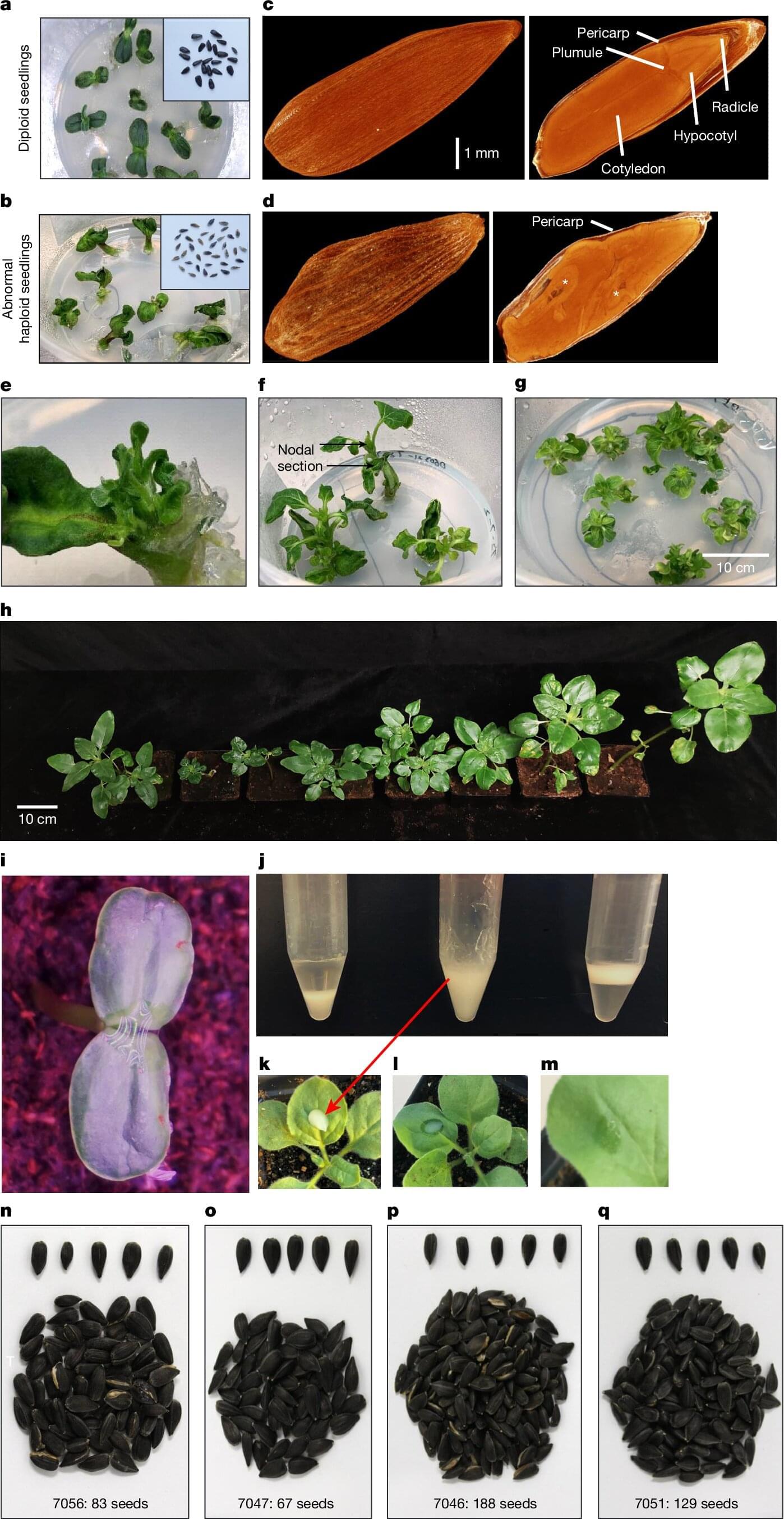Syngenta Biotechnology China-led research, with partners in the U.S., France, the UK, Chile, the Netherlands, Argentina, and across China, has discovered that sunflowers can form viable haploid seeds through parthenogenesis in the absence of pollination. This discovery opens the possibility of a scalable doubled haploid system in sunflowers, a technique that could reduce the time needed to produce fully inbred lines from six years to ~10 months.
Some animals, including certain birds, reptiles, fish, and crustaceans like Daphnia, can reproduce without fertilization through a process known as facultative parthenogenesis. In these species, females can produce offspring without male involvement. Charles Darwin first documented unusual reproductive patterns in plants, but many aspects of plant reproduction remain poorly understood.
In most flowering plants, seed formation depends on a process called double fertilization. This involves one sperm fertilizing the egg and another fertilizing a separate cell that forms the endosperm, a tissue that nourishes the embryo. Without fertilization, viable seeds rarely develop.
